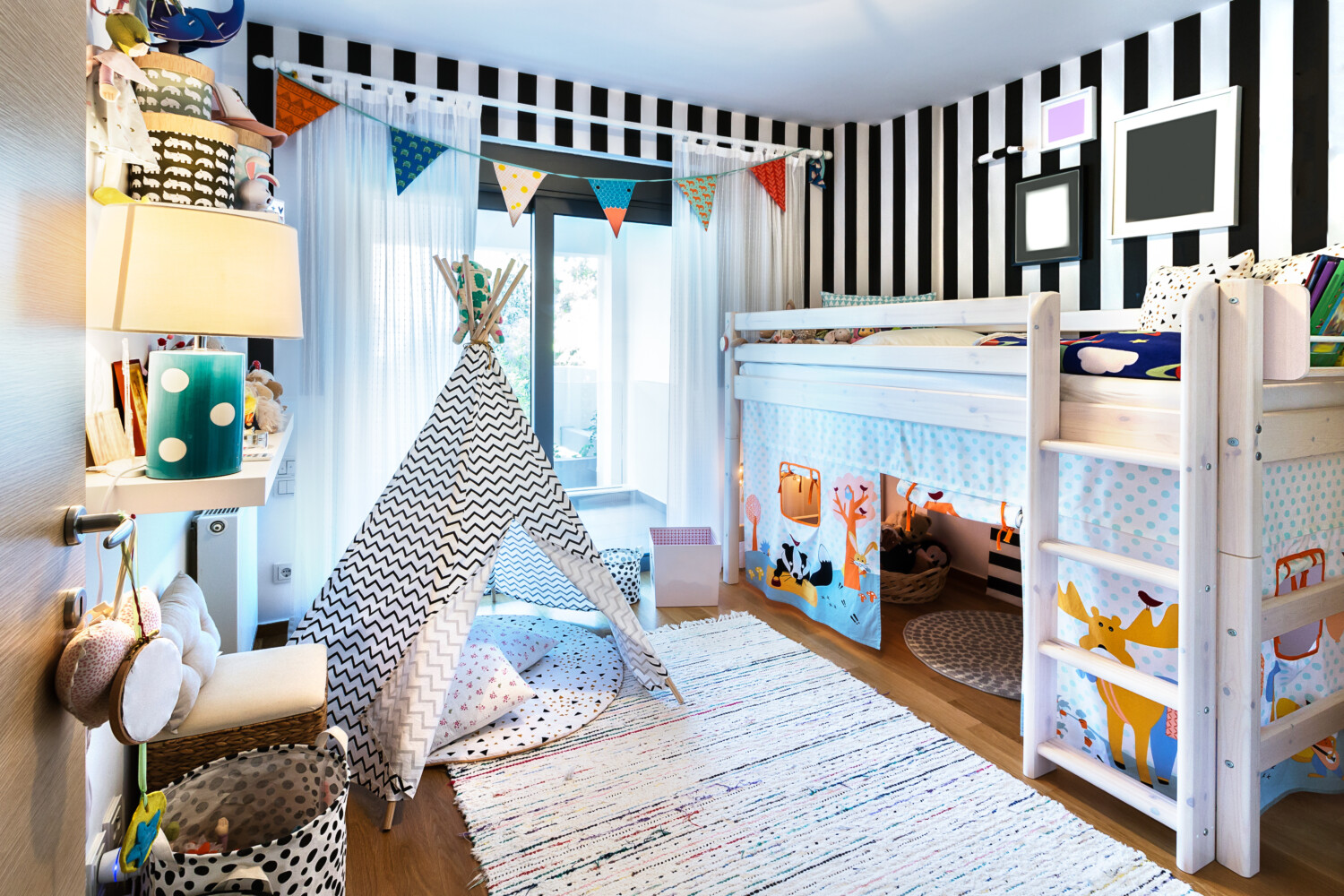As parents, we know that getting kids to clean up their rooms isn’t always easy. The mess usually looks different depending on their age. When my daughter was in preschool, her floor would be covered in dress-up clothes and picture books. As she got older, it became littered with art project remnants and items she’d used to play pretend school.
Now, as a teen, it’s magazines and outfits that didn’t make the morning cut. Back in those earlier days of parenting, I would help initiate the daily clean-up task as a group effort, but now that teamwork seems like overkill.
According to a poll from a cleaning product manufacturer, there’s a trick that can help kids clean their room that doesn’t involve either of the two desperate parent go-tos — bribing or nagging. Next time your child’s room needs cleaning, just put on a few feel-good tunes.

Survey Finds That Music Can Entice Children to Help Clean
A 2019 survey of 1,051 adult Americans commissioned by Jelmar, the cleaning product manufacturer of CLR and Tarn-X household cleaning products, reports that 80% of Americans say they listen to music while cleaning.
According to the findings, 94% of people reported positive feelings associated with listening to music while cleaning and 66% say music makes their cleaning tasks more enjoyable.
The most common genres survey participants listened to were rock, pop and country. Around 52% reported having special songs they listen to while cleaning or say that music is important to their tidying-up routine.
Around 92% of “musical cleaners,” as Jelmar puts it, noted that at least one chore is more enjoyable with music, and listed kitchen cleaning tasks or cleaning floors among these.
Even more telling is that parents are more likely to be musical cleaners: 85% are parents, while 77% are non-parents. Parents also report that music entices children (at 33%) and others (at 10%) in the household to help out.
It’s unclear how scientific this study is, as Jelmar didn’t reveal much about its methodology. However, cleaning isn’t the only thing music has been reported to improve. Researchers have long studied the effects of music on cognition and well-being and therapeutically in medical settings. In one study published in the International Journal of Surgery. scientists concluded that a surgeon’s task performance can “significantly be improved by music.”
Listening to music helps release dopamine, a chemical in the brain that creates pleasure. It works well with cleaning because it distracts from the repetitive actions you’re using and lets you synchronize them to the beat, which makes your work more effective and fun.

Why You Should Teach Kids How To Clean—And How To Do It
While some people might want to throw the towel in when it comes to getting their kids to pick up a dish or two, research has shown us that the act of cleaning, as well as being in a clean space, can reduce stress, anxiety and depression. It’s also linked to better sleep, which can lead to a more positive mood. Cleaning basically improves your mood with relatively mindless, repeated movements while providing a greater sense of control.
“When kids have chores, such as cleaning their room, it also helps improve their confidence and foster feelings of competence,” Lauren Schapiro, a psychotherapist with Liz Morrison Therapy, told Care. “All children want to learn how to master tasks they could not previously accomplish, and having chores helps improve self-esteem by succeeding in completing these tasks.”
How you go about asking your child to clean with the use of music will depend on their age. For young children, you might want to say that when you put on a certain tune, it will signal that it’s time to put toys away.
Older elementary-age children might appreciate a 5-minute warning. Teens may prefer having a more open timeline to work with, such as knowing they need to clean their room before they head out for school or by bedtime that evening. These young people may benefit from making their own cleaning playlist or finding others’ playlists on Spotify. Either way, positive reinforcement is key.

Helping kids feel proud of their work can help keep them motivated. Tell them you’re proud of them, no matter their age. It’s always nice to be acknowledged for hard work.
This story originally appeared on Simplemost. Check out Simplemost for additional stories.


